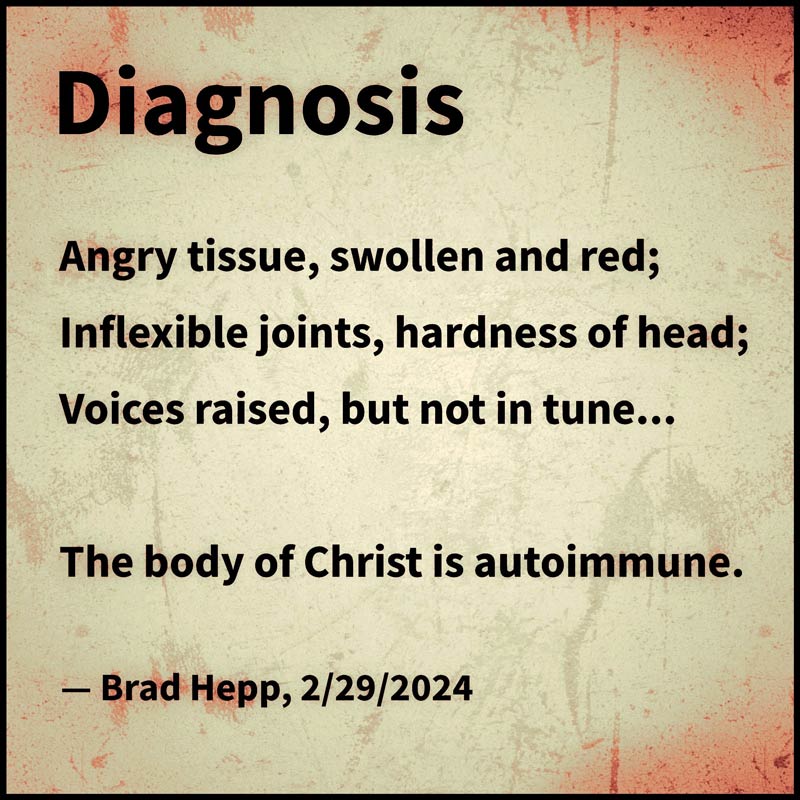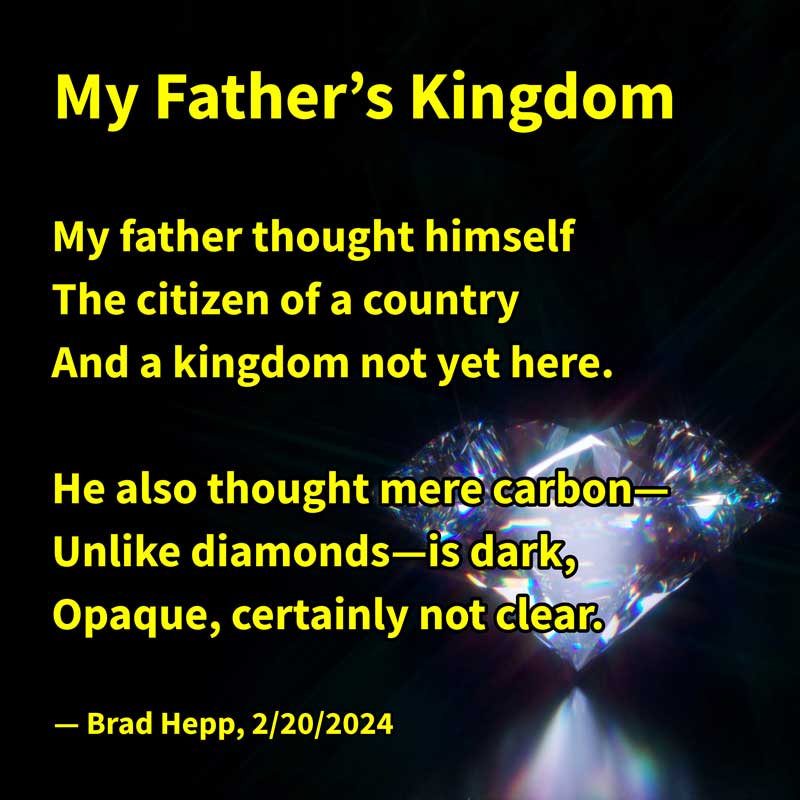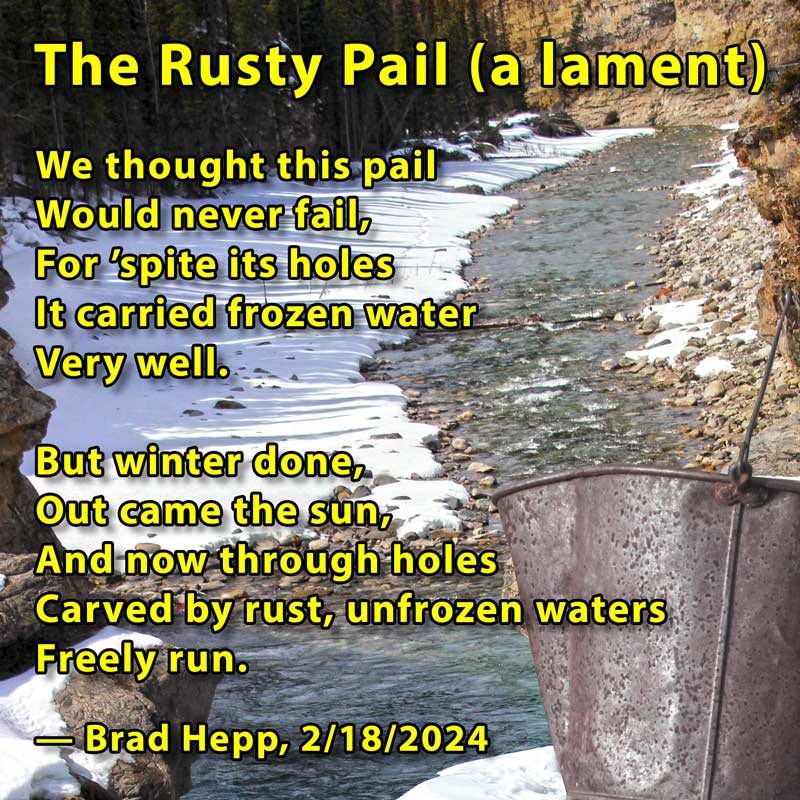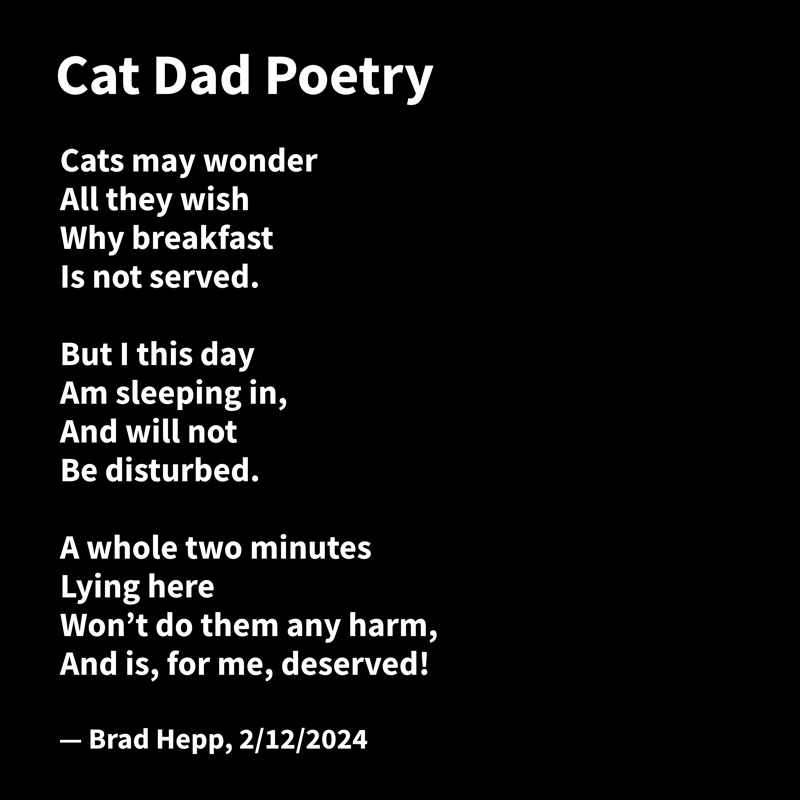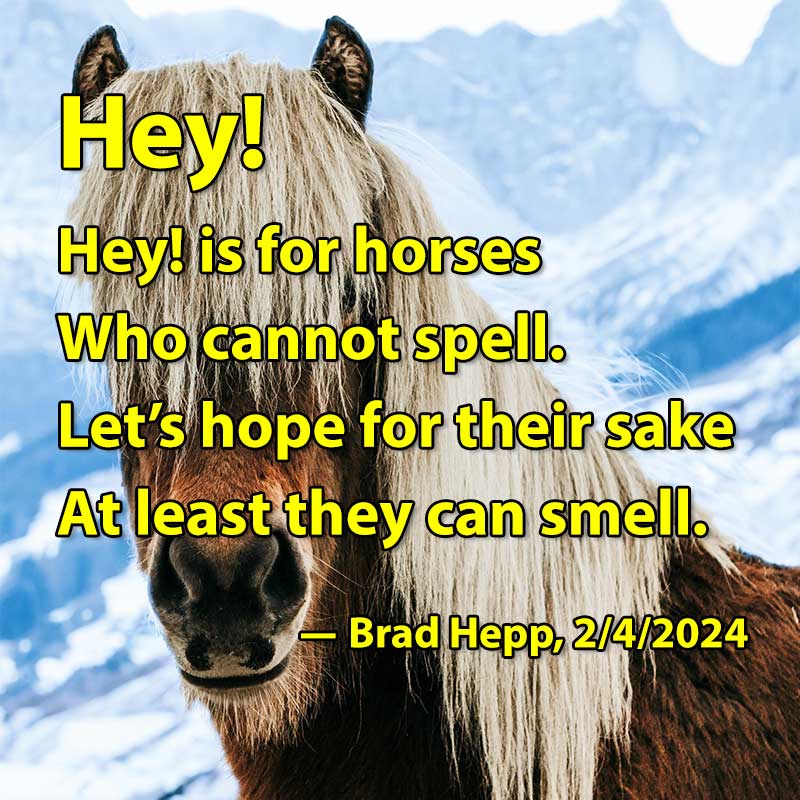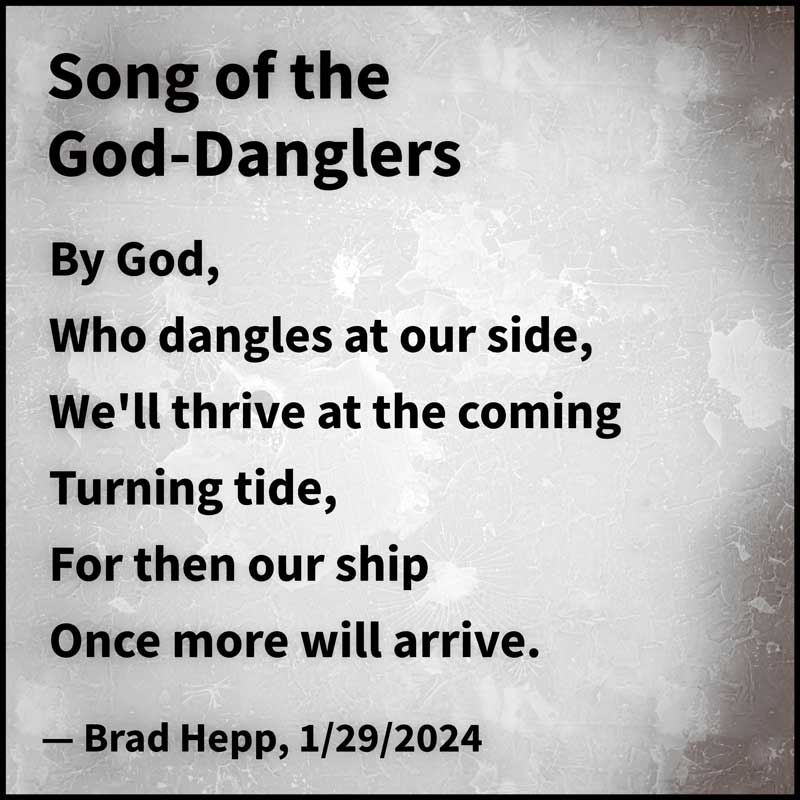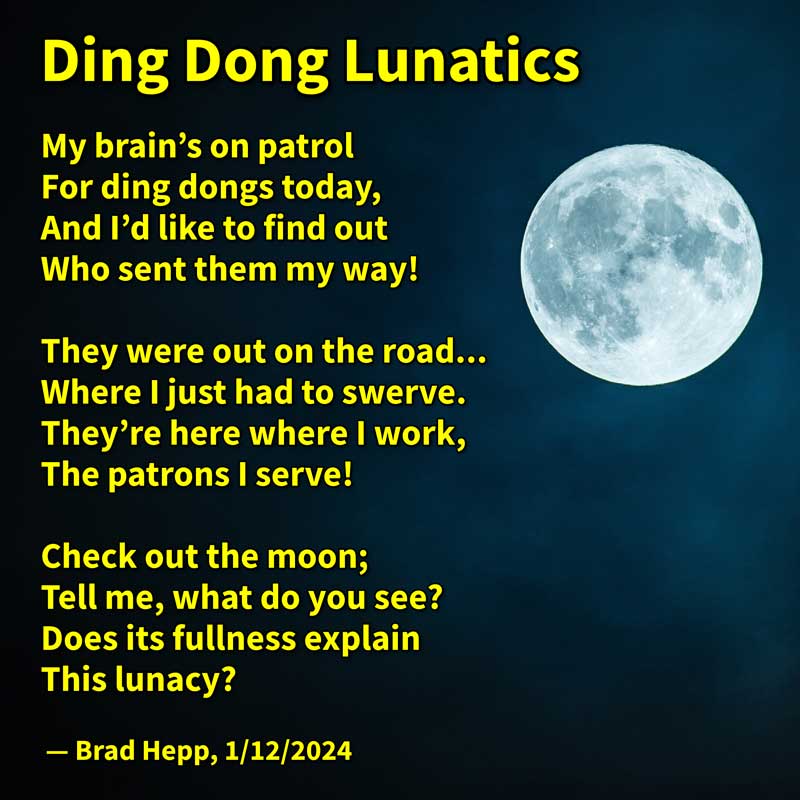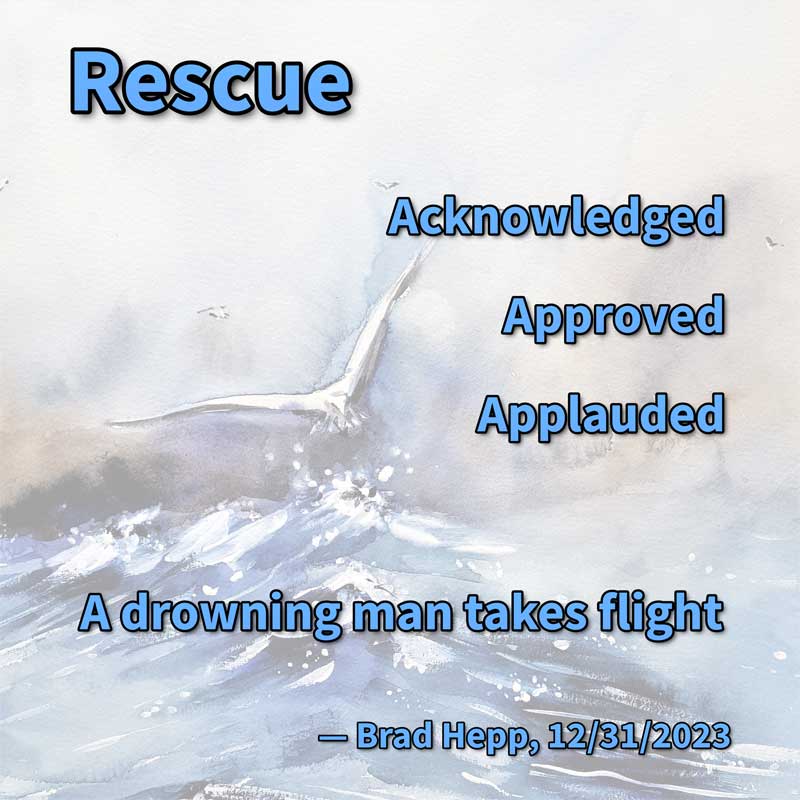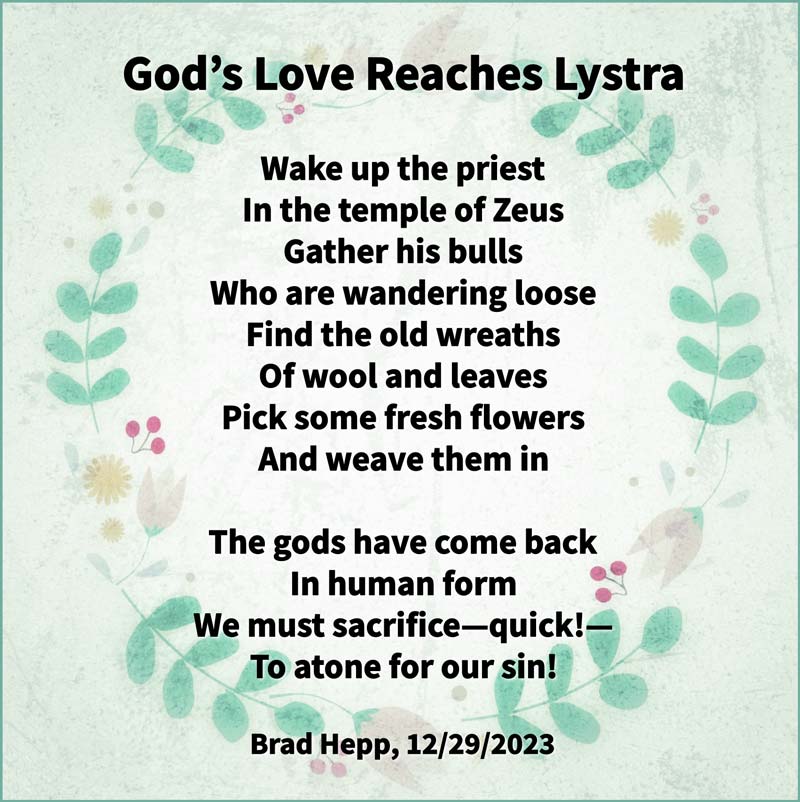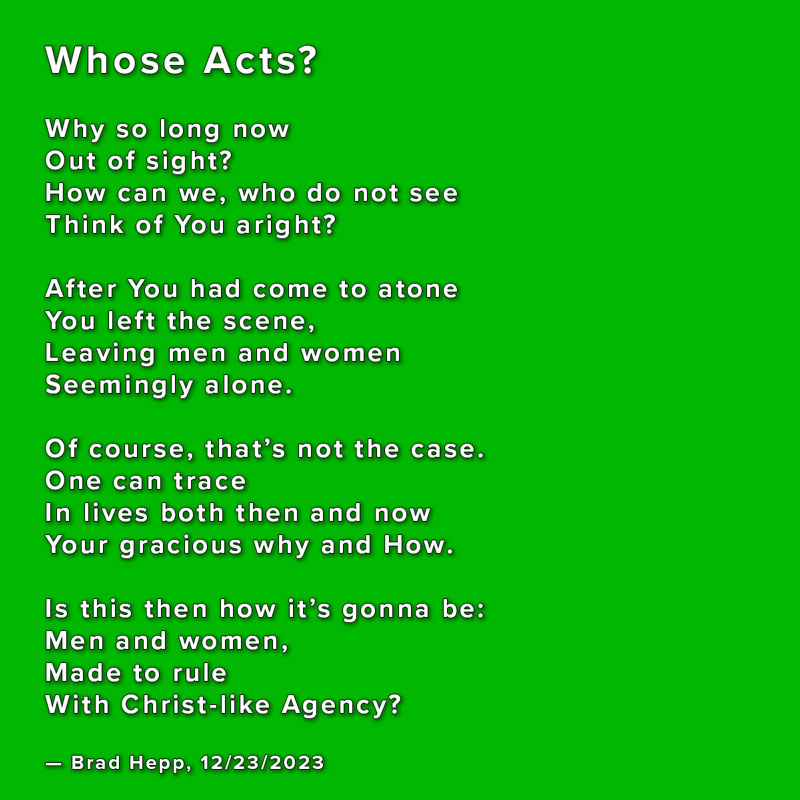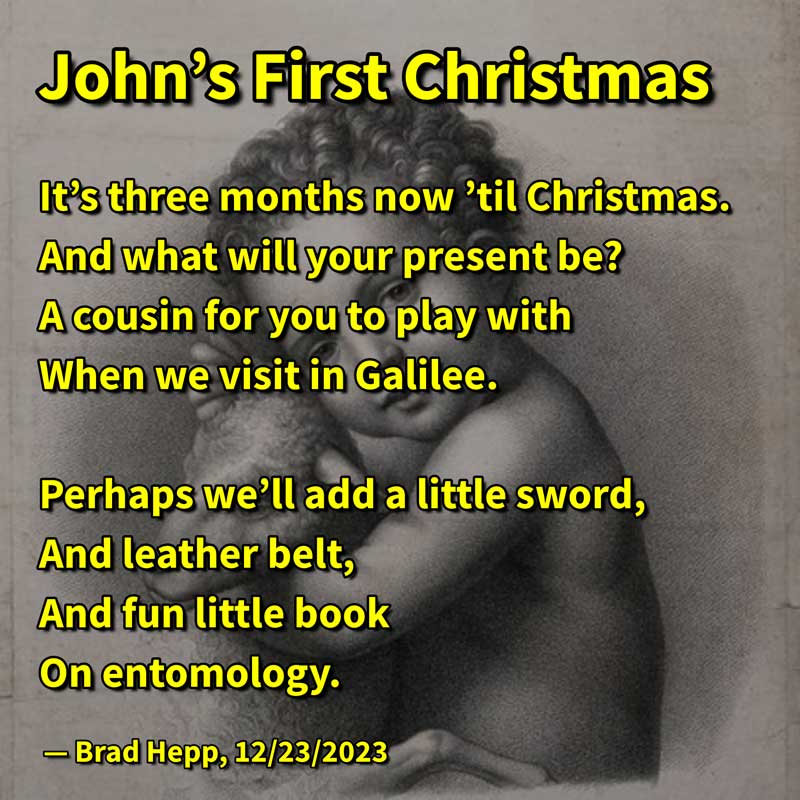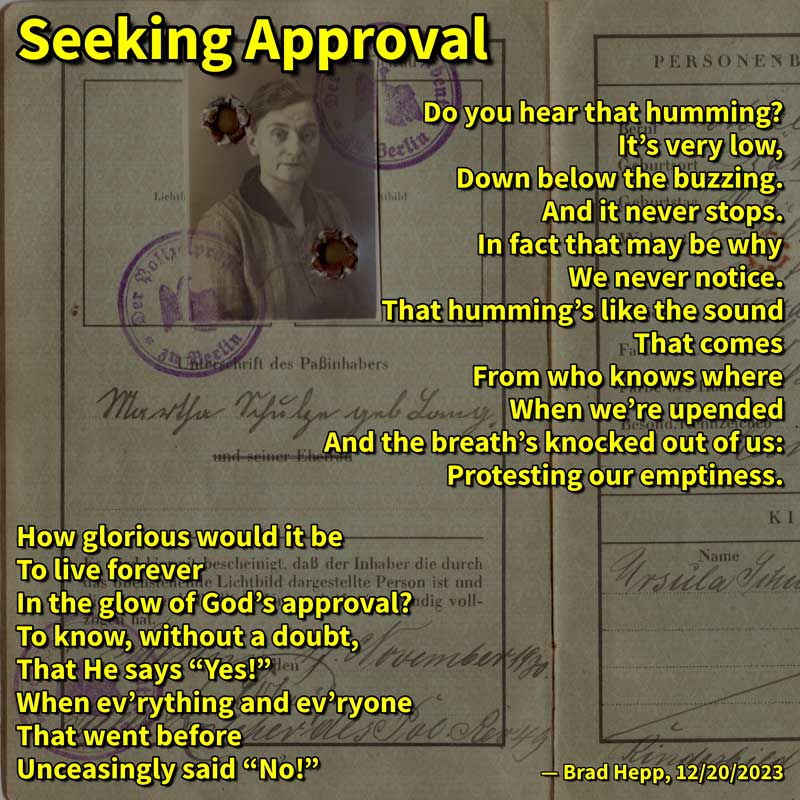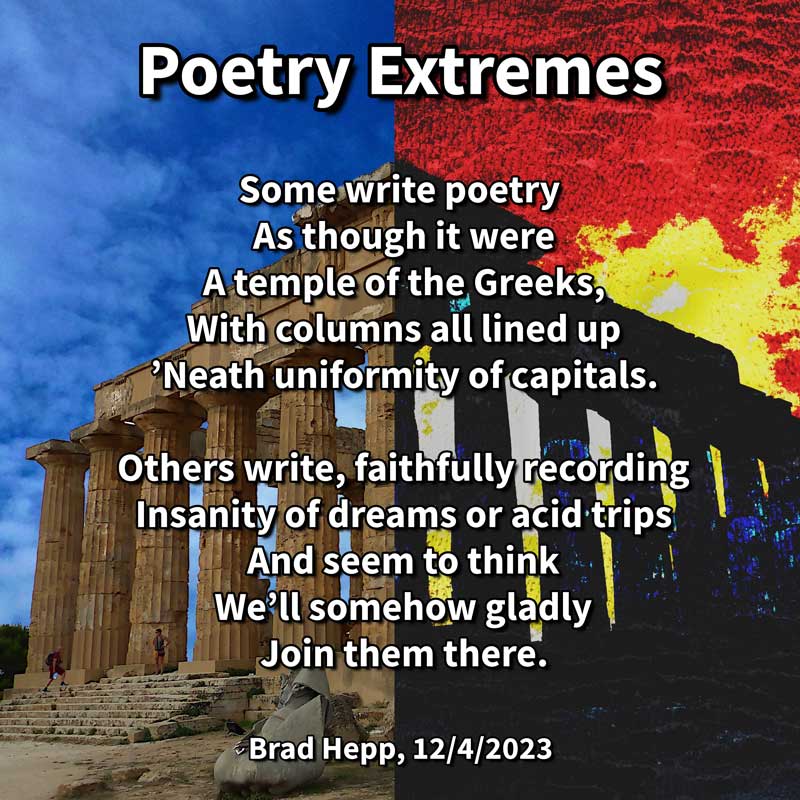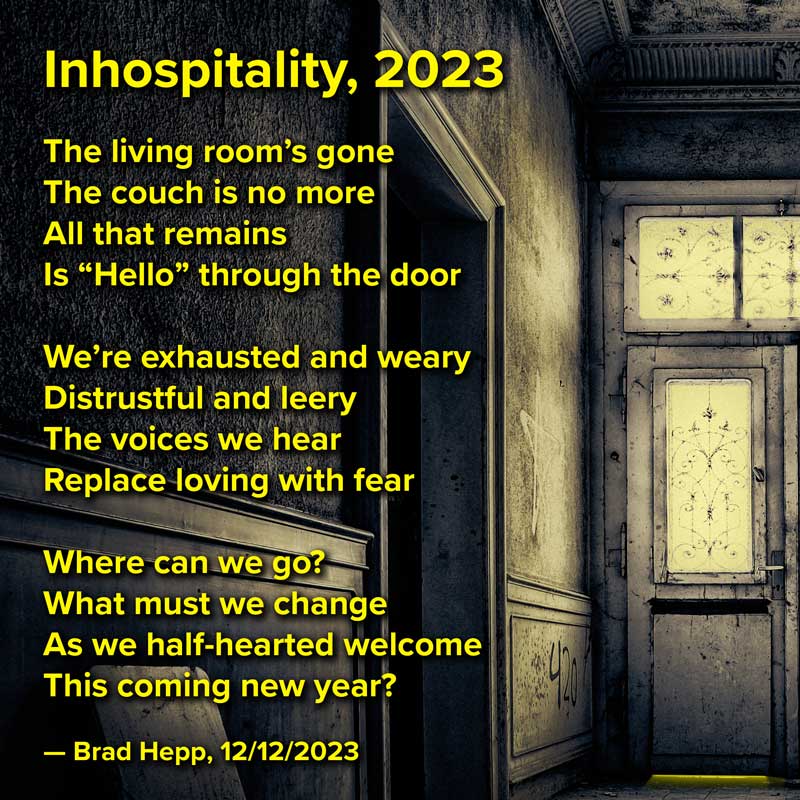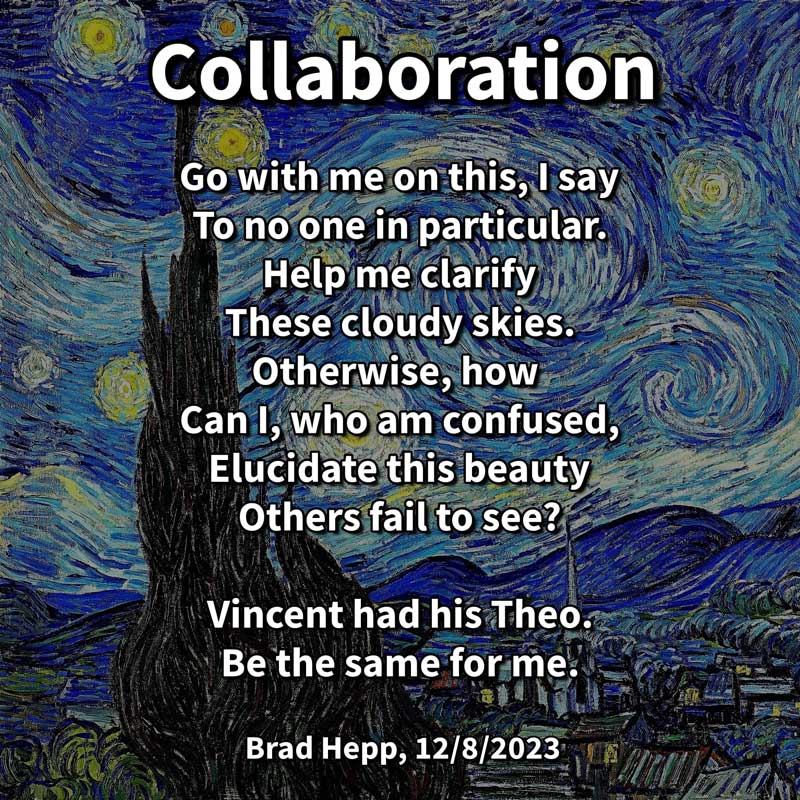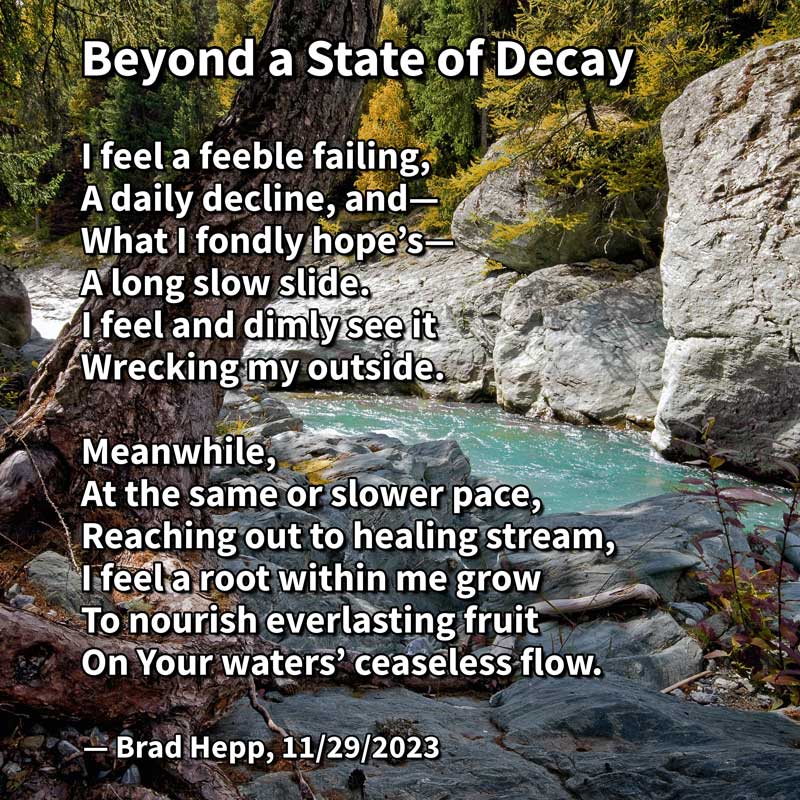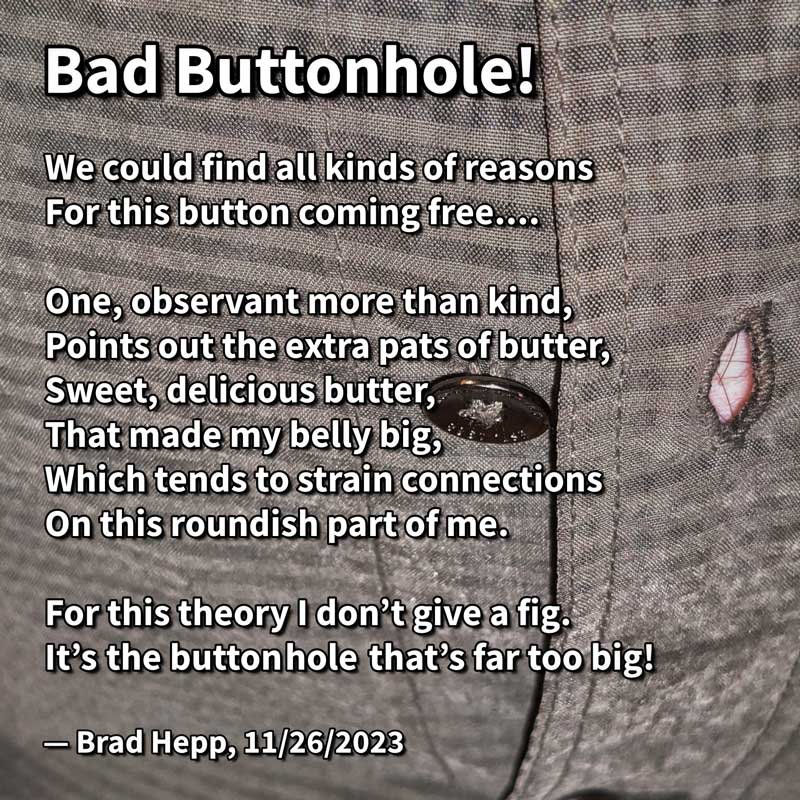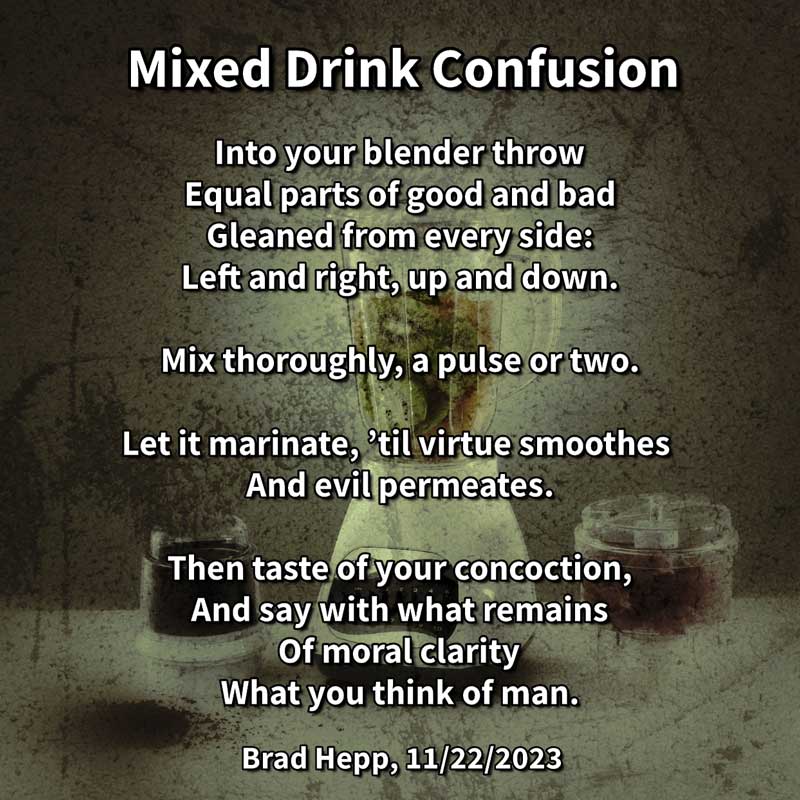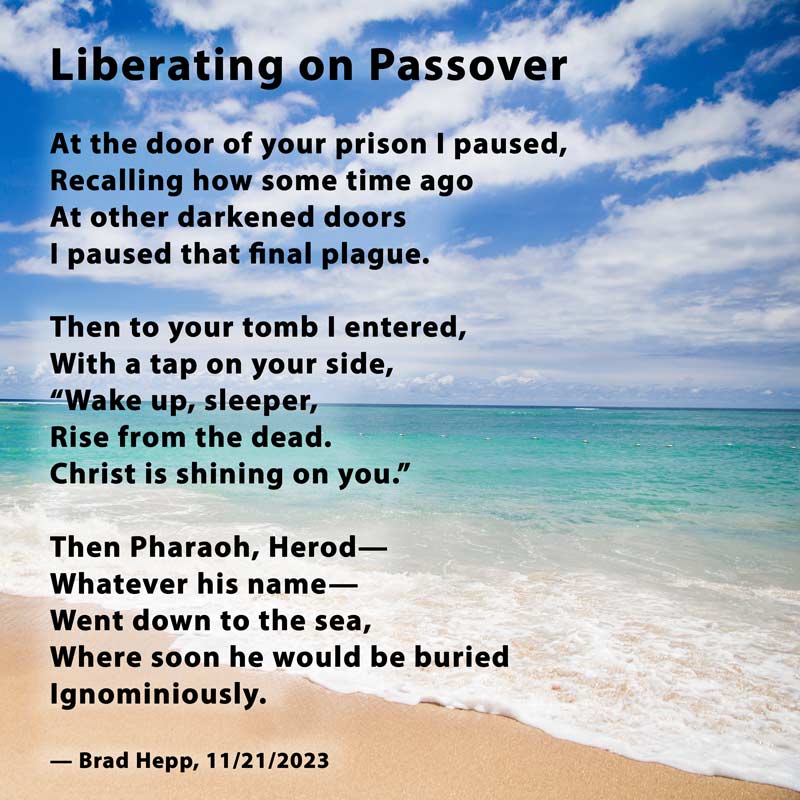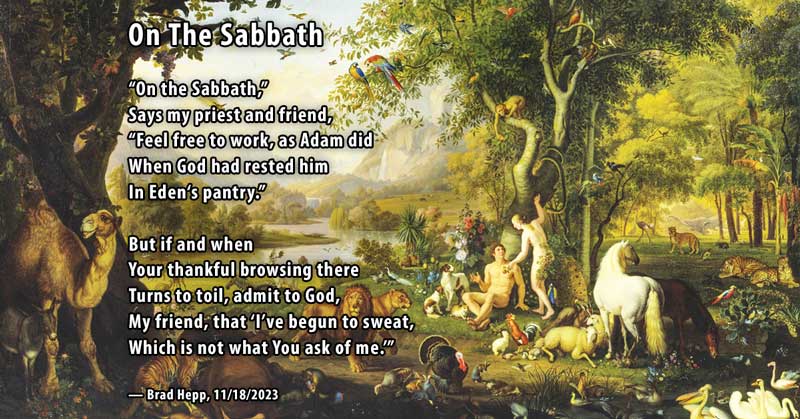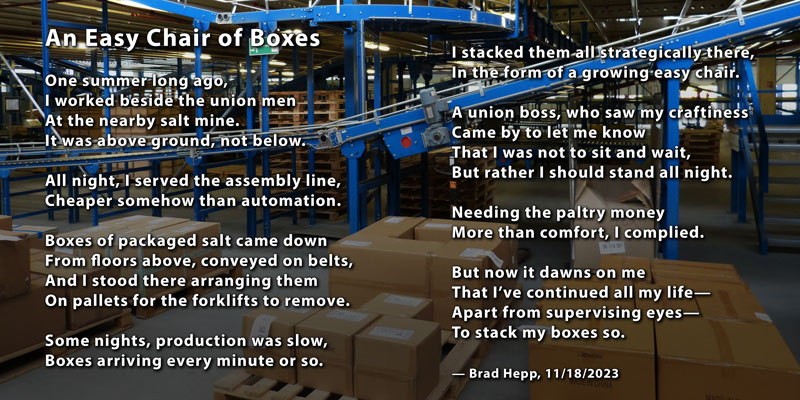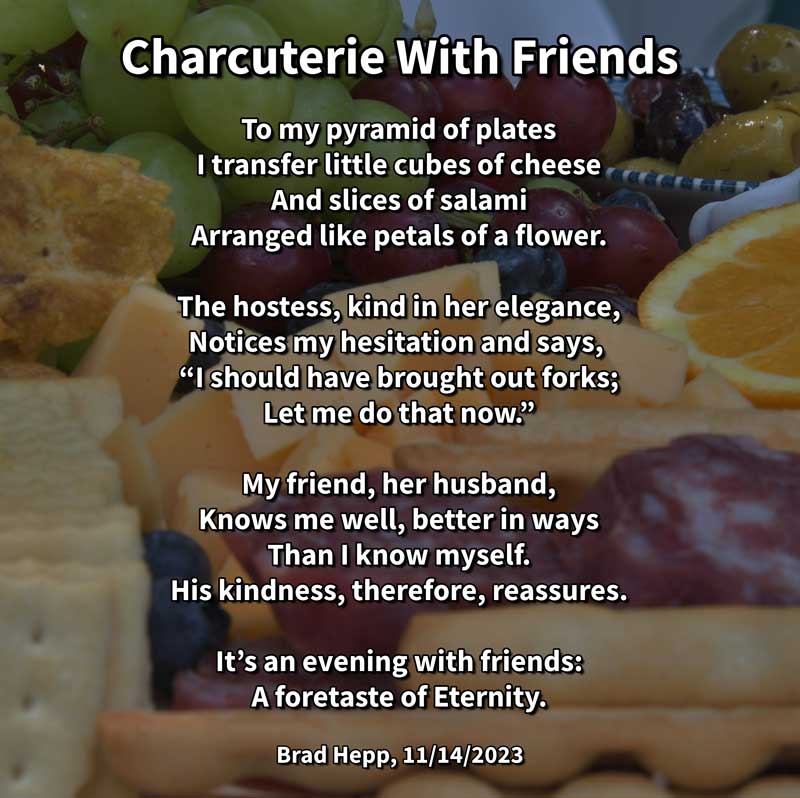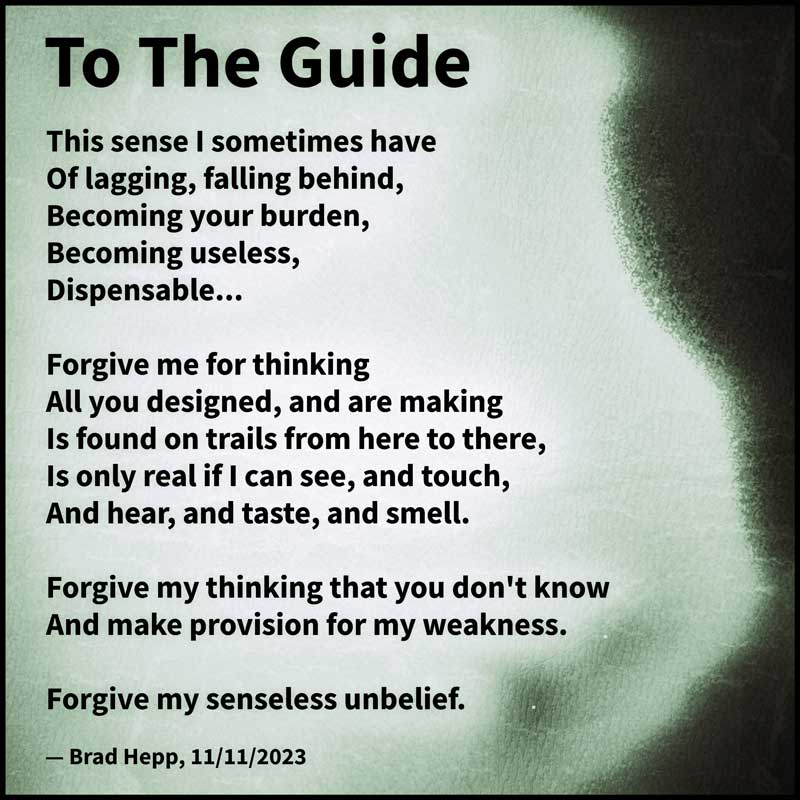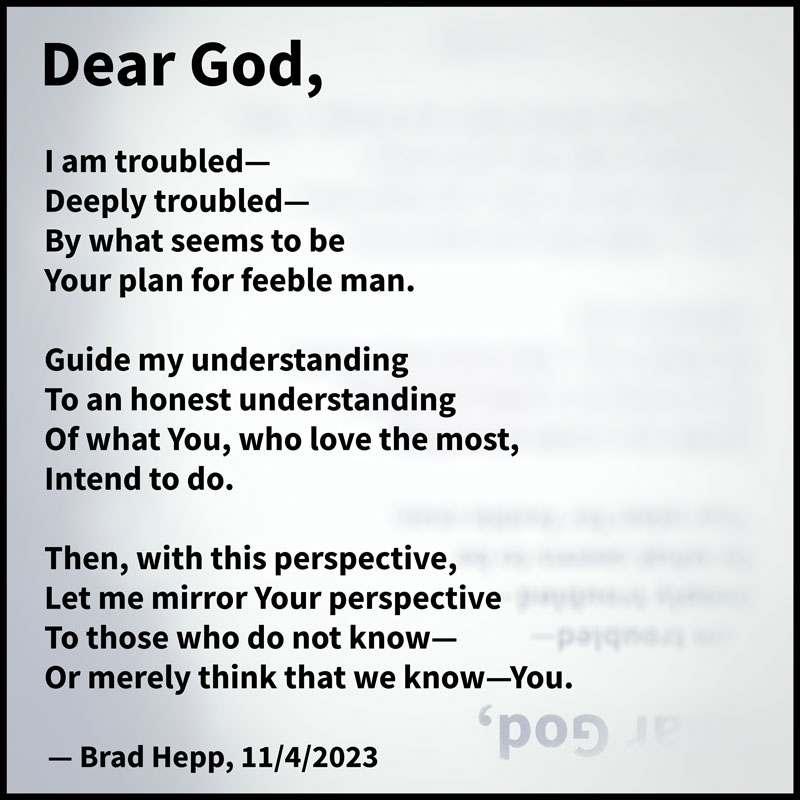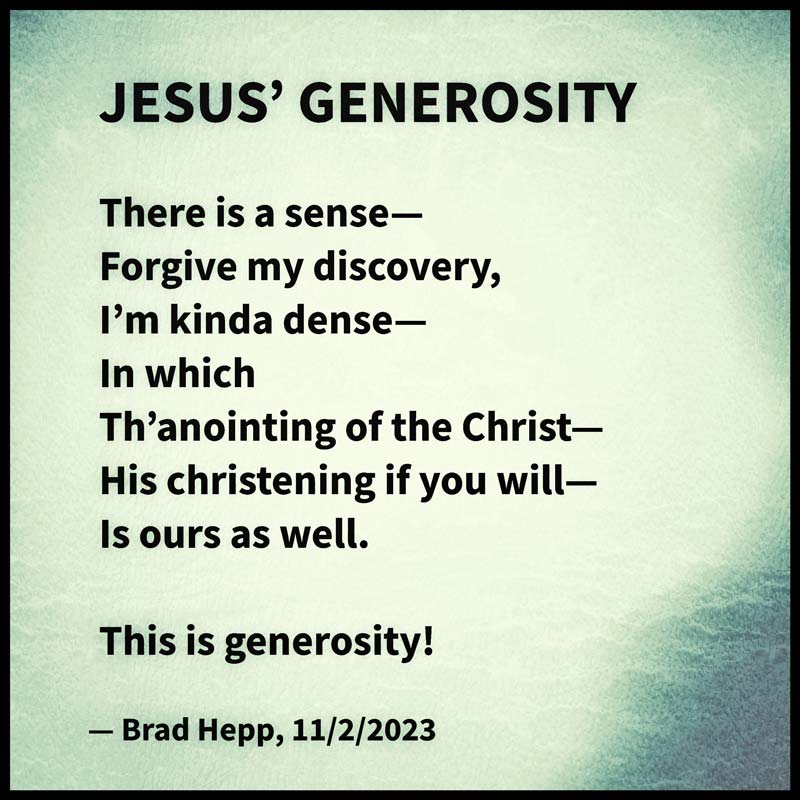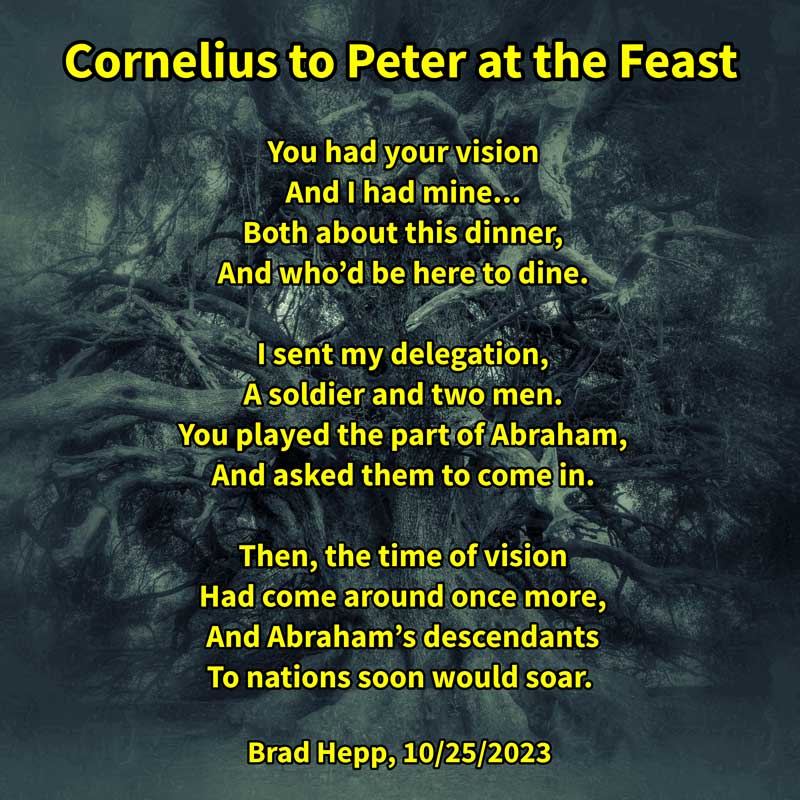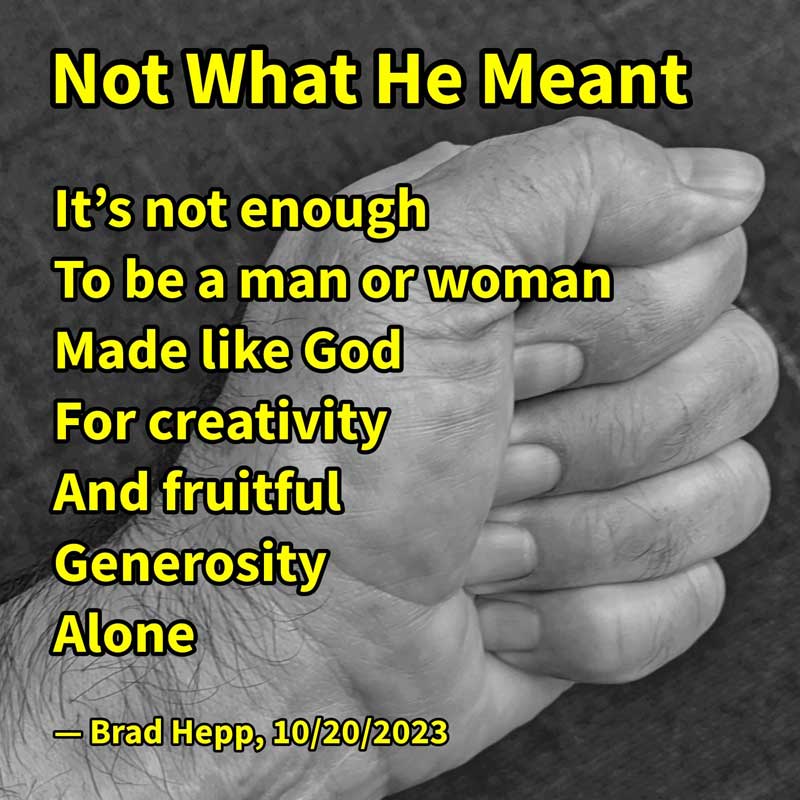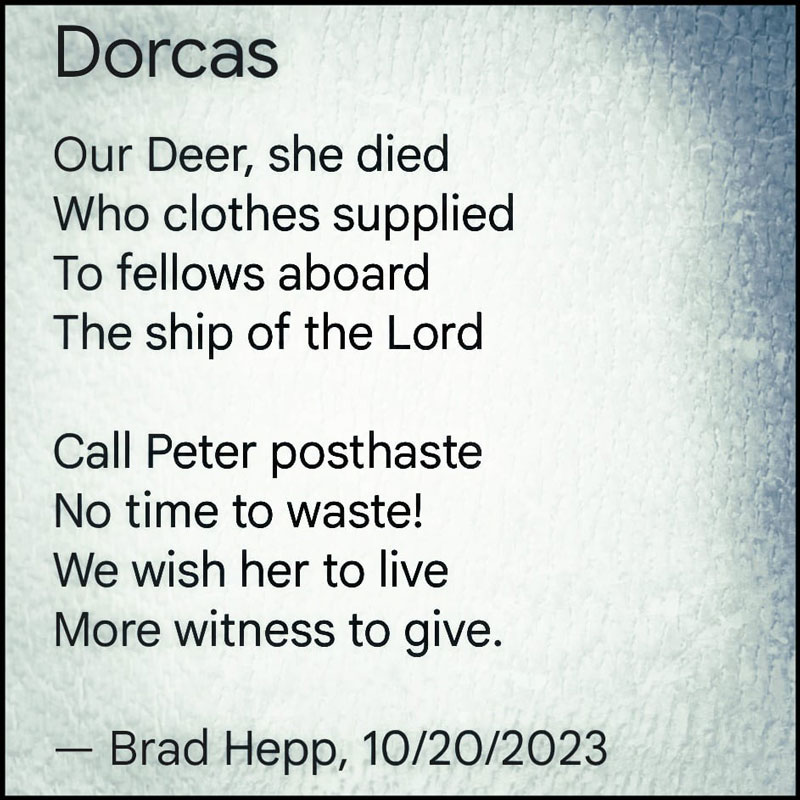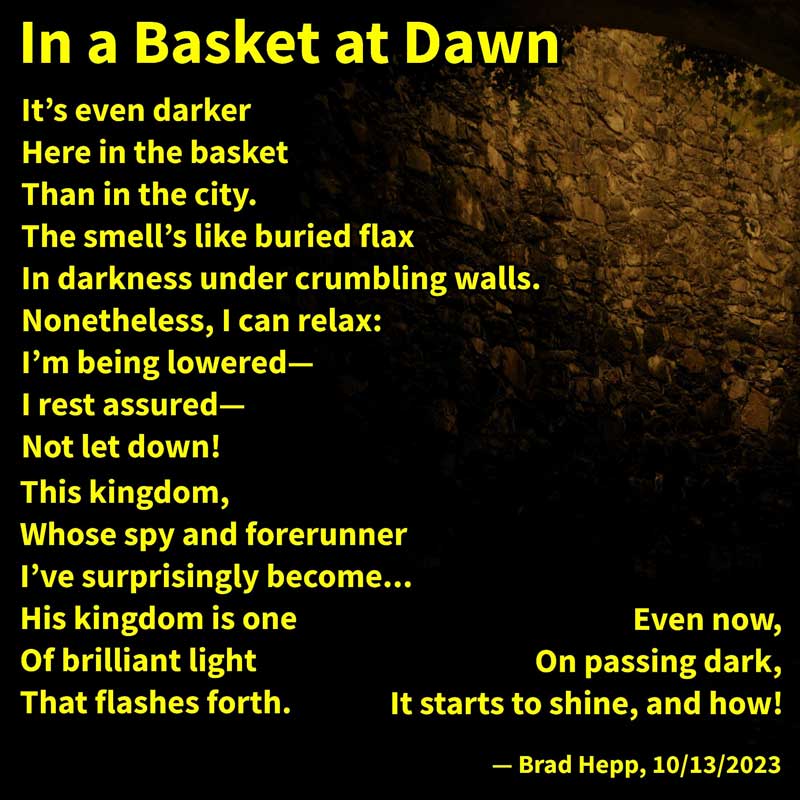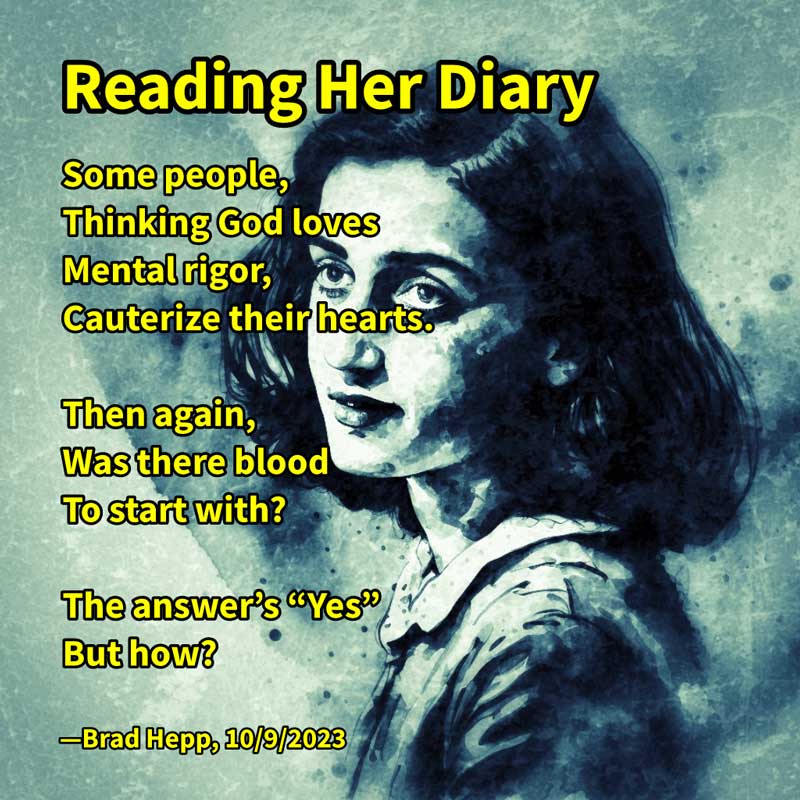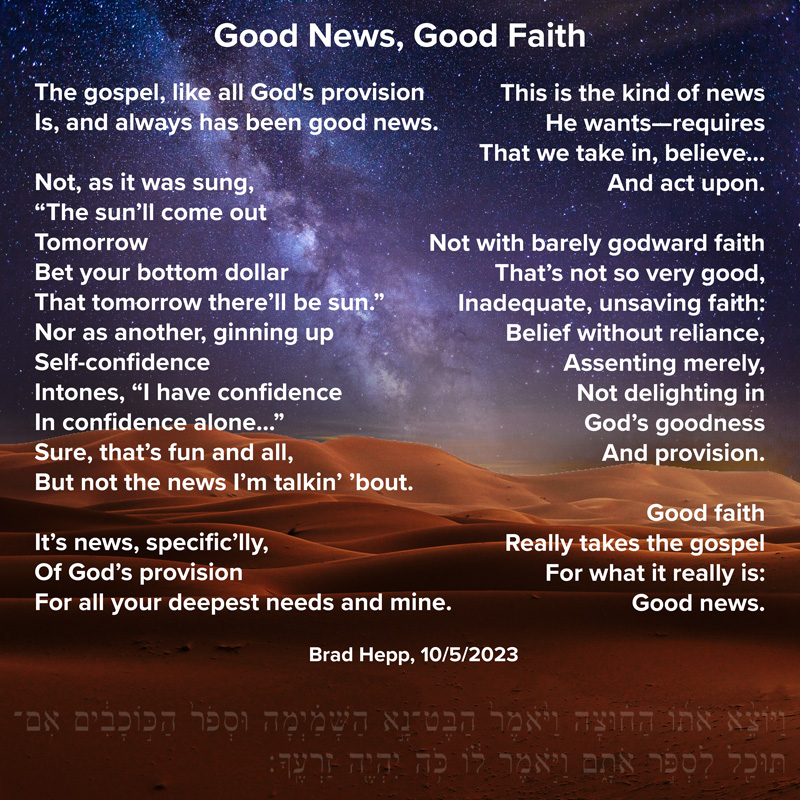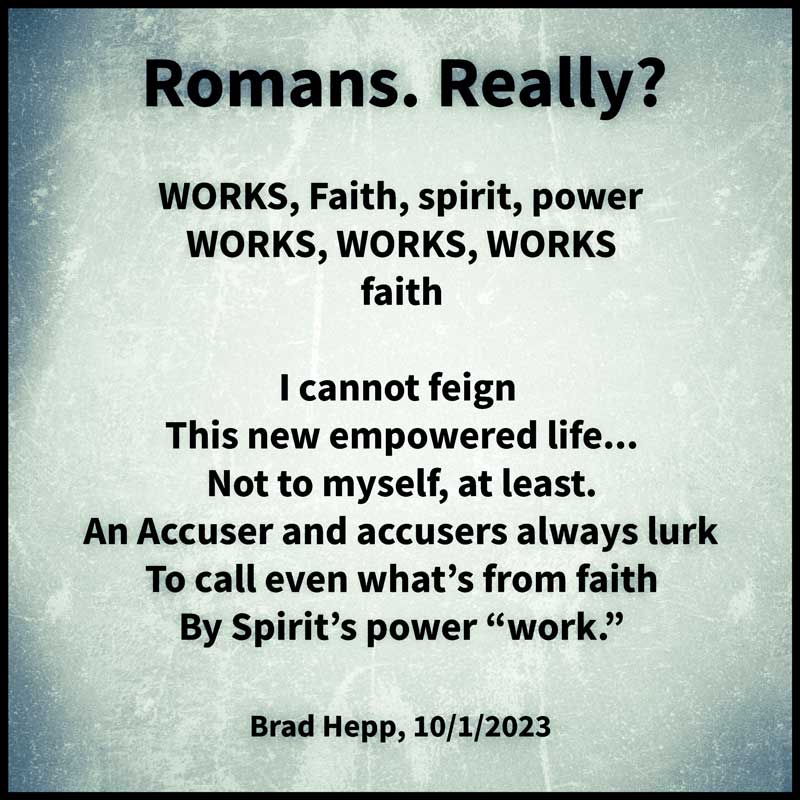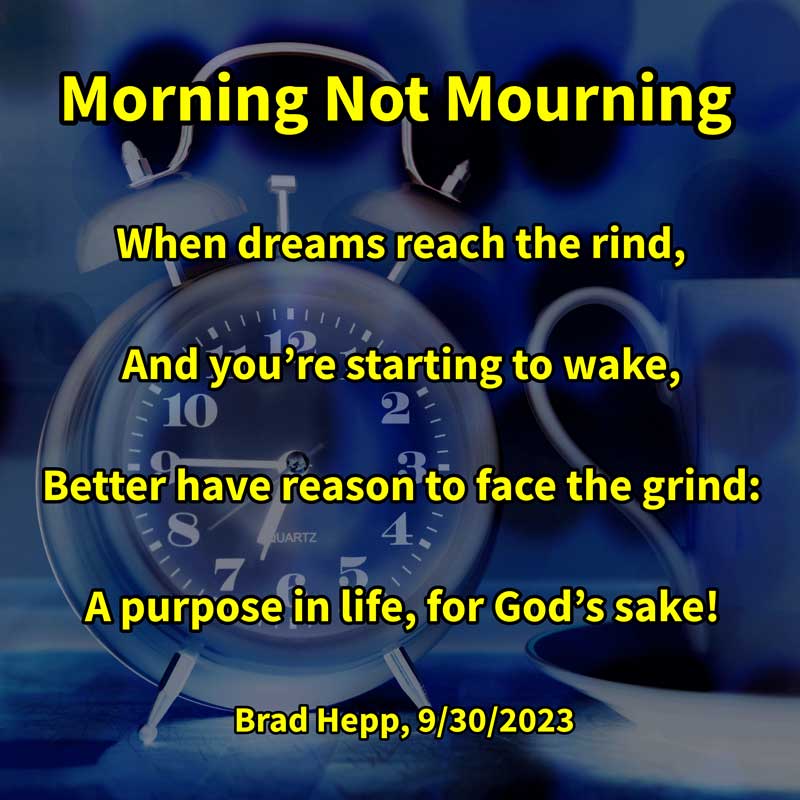(if you are viewing this via email, the website has a recording of this poem and commentary; click the title above)
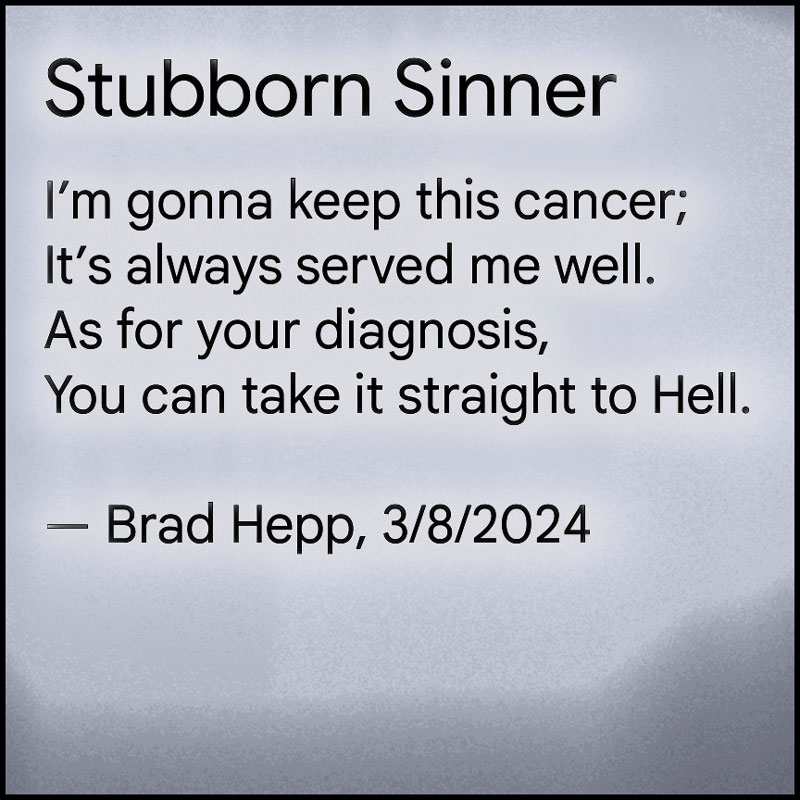
Commentary
One of the things I have been gnawing on lately is an observation that Christians sometimes refuse to acknowledge that we are sinners. When some intrepid preacher points out one of our common everyday sins,* some of us go out of our way to marginalize that preacher. It’s ridiculous. My theory is that we wish to hang on to certain sins.
I know some will read this poem and immediately think “Unwholesome!” a la Ephesians 4:29. We need to work on our understanding of that verse. It must surely have to do with the speaker’s (or writer’s) INTENT, be it to build up, correct, benefit… or be it merely to shock, and give the speaker/writer some undeserved attention.
My intent in writing this is for the reader to recognize himself or herself in their unspoken(?) complaint, and then to REFLECT: “Do I ever do what this poem speaks of?”
*Like racism. This is something we all struggle with. But I have seen and heard people claim that’s all in the past. Bologna!
#hypocrisy #sinners #savedbygrace #whenwewereyetsinners #chiefofsinners


